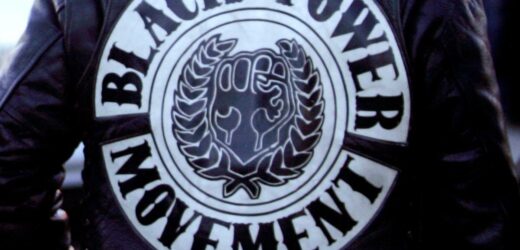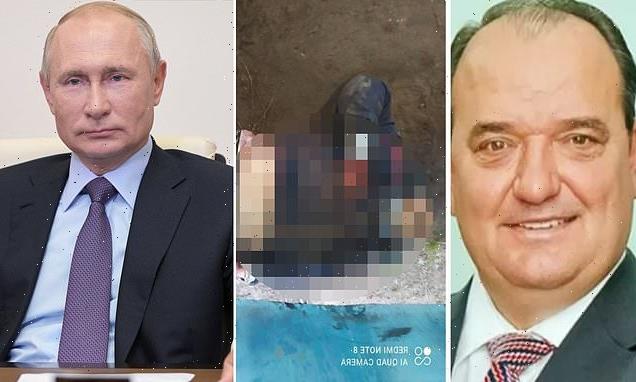He put a blue bandanna over his face and stood in an intimidating pose as Black Power women went into a house and demanded cash from the father of their kidnap victim.
Shaun Te Kiri’s role in the kidnappings and bashings of a woman who was wrongly accused of stealing methamphetamine from the head honcho of a women’s chapter of Black Power has landed him in jail for two years and 10 months.
Te Kiri, 35, is the final person to be sentenced after the horrific torture of a woman in Rotorua in October.
He was sentenced in the High Court at Rotorua on February 22 by Justice Graham Lang after previously pleading guilty to kidnapping and participating in an organised criminal group – the latter carries a maximum sentence of 10 years’ jail.
Ring leader Rickylee Dixon, 37, was jailed last year for nine years and six months. Two other main offenders – her daughter Daisy Dixon, 19, and associate Harete Ohlson – were also jailed for six years and nine months and six years respectively.
The kidnappings were a means to extort money from the victim’s father as a way of recovering a perceived debt after Dixon thought the victim stole methamphetamine from her car – an accusation that turned out to be false.
The victim’s ordeal included being bound, gagged, beaten with a tomahawk and smashed over the head with a metal baseball bat. A sharp object was inserted into her lip and her elbow was bent back until it snapped.
She was transported around Rotorua in the back of a truck as she drifted in and out of consciousness and was urinating on herself. She was only saved after her father askedmale members of the Black Power gang for help.
Dixon is considered the president of Black Power Sisters Rotorua Fordblock gang.
Others involved included Angela Dehar, 50, and Thorne Tucker, 18.
Daisey Rifle – Dixon’s mother – was also charged but died last year with her case unresolved.
The first kidnapping happened on September 12 when the woman was taken from her bed in the middle of the night. She was severely bashed by the women and money was taken from her father.
The woman was kidnapped again on October 21. Te Kiri was involved in the early stages.
Justice Lang said Te Kiri accompanied two others to the West End shopping centre where the victim was made to get into a car.
Te Kiri was armed with a knife and long sword. After the vehicle drove away, he was party to a conversation where it was said the victim was a hostage and the associates would extort money.
“A message was sent to the victim’s father to say the group was coming to get money from him,” Justice Lang said. “As the vehicle approached, you put a blue bandanna over your face, you got out of the vehicle and adopted an intimidatory pose as others in the group confronted the father and you were present as he handed over a few thousand dollars.”
Justice Lang said Te Kiri’s role was to provide support for the women who were demanding money.
“You remained with the group for the rest of the day as they travelled around Rotorua with the victim in the car. At one stage they stopped at a bar and spent some of the money.”
Justice Lang’s starting point was five years’ imprisonment but discounts of two years and two months were given for his guilty pleas and other mitigating factors discovered in pre-sentence and cultural reports.
A cultural report found he was raised in difficult circumstances, he lived in an impoverished area and he was sent to live with his father when he was 13 as his family could no longer control him.
However, his father “effectively left him to roam the streets at will”, Justice Lang said. Te Kiri started smoking cigarettes and drinking alcohol at the age of 10 and was smoking cannabis regularly in his teen years.
He committed burglaries to pay for cannabis. Things improved when he lived with grandparents in the South Island but he returned to Rotorua after a couple of years.
He started smoking methamphetamine when he was 29, which slowed his “considerable” drinking and cannabis habits.
Justice Lang said Te Kiri became involved with the Black Power because he was related toRifle.
“I have no problem in concluding your background in deprivation and drug use contributed significantly to the fact that you were present and participated in the events that occurred. I also accept that you had an addiction to methamphetamine.”
On a positive note, Justice Lang said Te Kiri had strong prospects of rehabilitation because he now had family support and had been able to hold down jobs.
“However, this will depend very much on you being able to deal with your addiction issues.”
Justice Lang commended him for expressing a willingness to become involved in residential rehabilitation.
Te Kiri was now eligible for parole because he had been in custody since his arrest.
Justice Lang asked Community Corrections if Te Kiri could be put into residential drug rehabilitation as part of his pre-release or parole conditions.
“He really does need that kind of intervention if he’s going to have some kind of prospect of staying away from drugs, particularly if he comes back to this area.”
Te Kiri’s lawyer, Ngaroma Tahana, said that opportunity would be ideal and his family was prepared to move to the South Island to support him upon his release.
Source: Read Full Article

/cloudfront-ap-southeast-2.images.arcpublishing.com/nzme/IVM3YXYTVXGXEMGR7DHYJF4K2E.jpg)
/cloudfront-ap-southeast-2.images.arcpublishing.com/nzme/L7MF5OTOIF7QUFASQDYPETHXUM.jpg)

